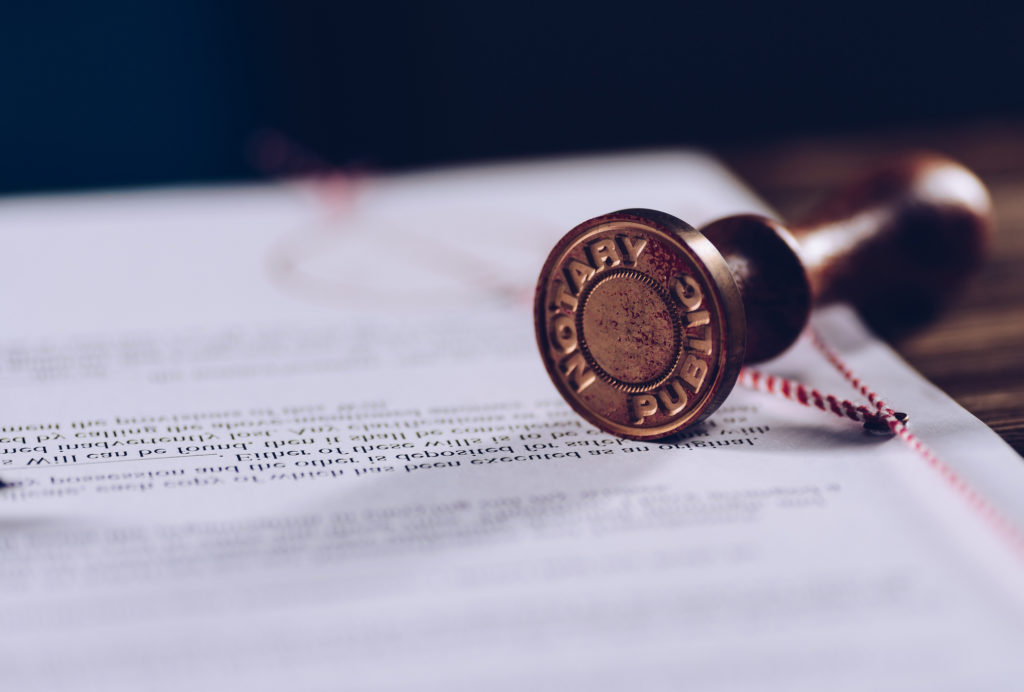Apostille Refine Explained: Simplifying International Record Confirmation
Apostille Refine Explained: Simplifying International Record Confirmation
Blog Article
Debunking Notarial Work: Streamlining the Function and Value of Notaries
In the intricate internet of legal documentation and verification, notaries stand as pillars of assurance and authenticity. Their function, typically shrouded in secret for many, brings substantial weight in making certain the credibility and stability of vital documents. As guardians of validity and fact, notaries play a pivotal part in our culture, yet their work is not constantly completely comprehended. By unwinding the complexities dropping and surrounding notarial methods light on the value of their acts, a clearer understanding arises of the vital role notaries play in supporting the material of legal and legal agreements.
The Background of Notarial Job
Exactly how did notarial work progress in time to become an integral part of legal and organization purchases? The history of notarial job dates back to ancient human beings, where scribes played an important role in tape-recording vital details and verifying files. As cultures advanced, the need for a more formalized system to guarantee the validity of agreements emerged. This led to the advancement of notaries, individuals selected by the state to serve as objective witnesses in legal issues.
Throughout the Middle Ages, notaries got importance in Europe, with their features broadening to include composing legal records, licensing trademarks, and maintaining records. The rise of international trade further highlighted the importance of notarial job in verifying agreements and contracts across borders.
In the modern age, notaries remain to play an essential role in legal and service purchases by confirming identifications, validating the credibility of documents, and preventing scams. Their role in accrediting the validity of arrangements adds a layer of security and trust fund to the ever-evolving landscape of business and legislation.

Responsibilities and Duties of Notaries
Notaries play a crucial duty in validating the authenticity of records and the identity of signatures. One of their primary responsibilities is to witness the finalizing of crucial files, such as contracts, acts, and wills, to guarantee that all parties are entering right into contracts purposefully and willingly.
In addition, notaries are tasked with administering affirmations and oaths, which are vital in lawful procedures and the execution of affidavits. They accredit duplicates of original records, providing guarantee to establishments that the duplicates are real replicas of the originals. Notaries must keep accurate records of all deals they look after to make sure transparency and accountability. In general, the obligations and responsibilities of notaries are important in protecting the stability and validity of different files and transactions.
Notarial Certificates and Signatures
Exhibiting careful attention to detail, notarial certificates and signatures serve as vital parts in confirming the credibility of lawful records. Notarial certificates commonly consist of essential details such as the date of notarization, the names of the notaries, a description of the document, and the notary's main seal. These certifications supply a clear record of the notarial act, ensuring that the record can be conveniently recognized and traced back to the notary that looked after the process.
Signatures play a pivotal role in notarial job, as they signify the agreement and authorization of the celebrations involved. Notaries thoroughly witness the finalizing of records to verify the identity of the signatories and confirm that they are signing of their very own free choice. By attaching their main seal and signature to the paper, notaries accredit that the needed treatments have been adhered to and that the file is enforceable and valid.
Basically, notarial certificates and signatures are the trademark of credibility in lawful deals, providing guarantee to all events included that the papers are legit and binding.
Relevance of Notarial Acts
Notarization Process Described
Clarifying the notarization process provides clearness on the essential steps associated with validating lawful records. The notarization procedure generally begins with the private providing the paper to a notary public. The notary then confirms the signer's identity via appropriate identification techniques. When the identity is verified, the notary guarantees that the specific signing the file does so willingly and without any type of browbeating.

Verdict

Notarial certifications generally have important information such as the date of registration, the names of the notaries, a description of the file, and the notary's main seal. These certificates provide a clear document of the notarial act, guaranteeing that the paper can be conveniently identified and mapped back to the notary that supervised the procedure.
By affixing their main seal and signature to the record, notaries certify that the essential procedures have been complied with and that the record is legitimate and enforceable.
By confirming the identification of the notaries, validating their desire to enter into the contract, and licensing the day and place like it of the finalizing, notaries play an essential duty in upholding the credibility of legal documents.After the record is signed, the notary will certainly affix their main seal or stamp onto the paper.
Report this page